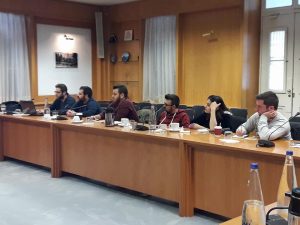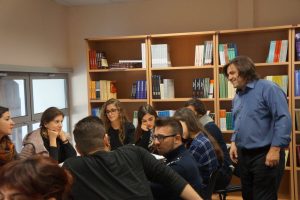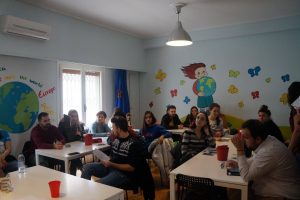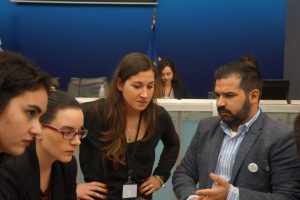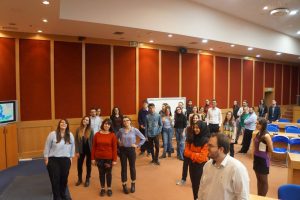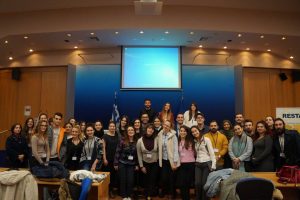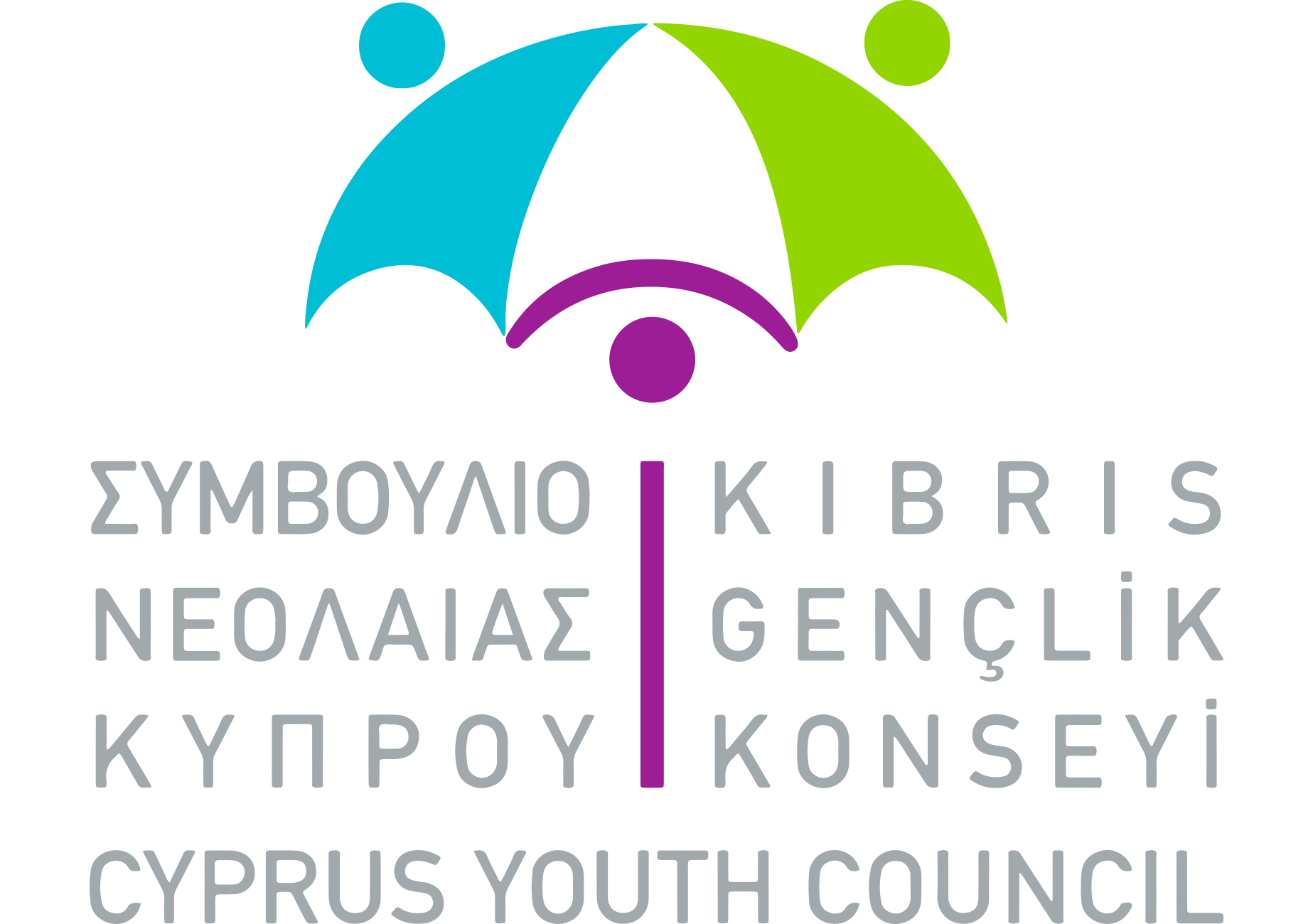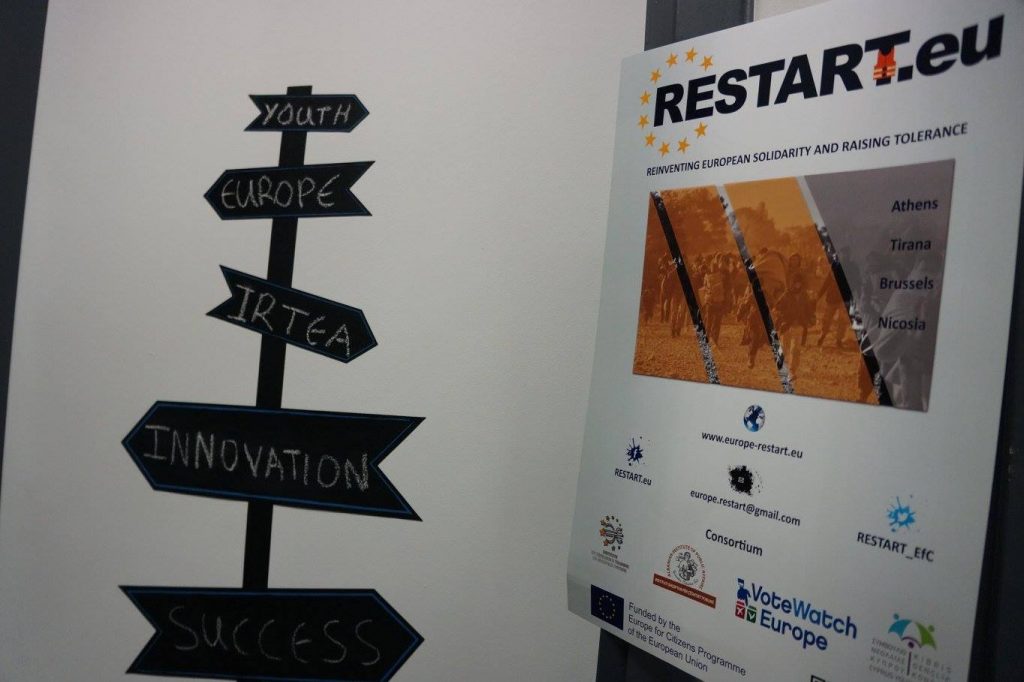
Four young Cypriots, Christina Papamichael, Eliza Kozakou, Christine Shahbenderian and Nikolas Athinis, had the opportunity to participate in the final activities of Reinventing European Solidarity and Raising Tolerance (RESTART. eu) Project which took place in Athens, Greece, from 20th of November to 7th of December, 2017.
A project funded by the Europe for Citizens Program of the European Union and implemented by IRTEA, a Greek research think-tank, in cooperation with the Cyprus Youth Council offered a precious and highly educative opportunity to 25 participants from Belgium, Albania, Greece and Cyprus to take part in the final activities contained the Pilot Activity. The activities consisted two weeks-long of various volunteering activities, Non Formal education trainings, workshops and animation video creation. The journey which the young Cypriots along with other participants embarked on so as to measure the refugee crisis and its extent in Europe and understand the progress towards the asylum or relocation and finally integration of refugees, ended with an exciting three-day Simulation Game of the European Parliament. Through this final activity, the participants had the rare opportunity to evaluate the strategies and policies in National and European Level and raise awareness about the necessity for action by the European societies.
Through the workshops conducted by well-renowned professors and officers working in the Asylum Service, the participants were offered a rare glimpse into the European Agenda on Migration and the Relocation Programme of the European Union. A special challenge that was pointed out by the professors and for which participants offered their suggestions in ways to overcome it, is the fact that there exist 28 – today 27 – different migration regimes – one for each member state, despite the talk of a comprehensive EU migration policy.
Special poignancy must be given the study visits to towns, and local authorities which the participants conducted and where they gained an invaluable first-hand insight into what measures and approaches are being implemented so as to ensure a smooth and efficient integration of the refugees. For instance, on their trip the Municipality of Livadia, the participants visited the local camps and heard of some testimonies by refugees. Upon their meeting with the mayor of Livadia they were introduced to a novel approach adapted by the Municipality of Livadia towards the accommodation and integration of refugees through the “Accommodation and Services Scheme. Refugees relocated to Livadia, live in apartments offered by the Scheme, of which local authorities are solely responsible for its implementation, as well as to the enrollment of refugee children in schools and for the organization of a plethora of cultural events. In May 2017, the Project achieved its goal to host 402 beneficiaries in 70 apartments, adding further weight to the claim that cities can be agents of integration.
It was highly interesting for the participants to compare this approach to the one taken by the Municipality of Athens where strong cooperation and collaboration exist with non-governmental organizations so as to implement measures regarding the integration of refugees. Innovative measures such as the digital platform offered to refugees to find various services which they may need in Athens on their phones, was one of the many useful practices the participants learnt from their visit to the Municipality of Athens.
Project’s participants had also a productive visit to “Stegi Plus” of PRAKSIS (Program for the Development of Social Support and Medical Cooperation), one of the shelters for unaccompanied minors in Greece, where the administrator and the legal representative explained the procedure and preconditions for entering the shelter, as well as the actions taken towards the integration of these unaccompanied kids. Social workers and psychologists during their conversation with the participants attached special significance to the fact that these minors need daily encouragement, support and oversight.
Adding to the numerous study visits offered by the project, was the visit Welcommon Camp of Renewable Wind in Athens, a camp specialized in hosting refugees and contributing to their integration. The participants acquired invaluable information as to what services are most needed in the camp, and the major challenges the workers face and how they tackle them. In order to further enrich the participants’ experience with refugee camps and gain a thorough insight as to their functionality, advantages and disadvantages, the participants also had the opportunity to visit another refugee camp in Athens, called Eleonas. In both visits, workers of the camps underlined that cooperation with local NGOs is fundamental in building networks and social cohesiveness that can facilitate the refugees’ integration to the Greek society.
As these jam-packed programme of activities, study visits and workshops illustrate, projects like RESTART. eu are much needed for the Europe’s young in acquiring important training in the humanitarian field. No doubt, the participants by learning about the innovative practices that are currently being carried out by various local authorities in towns and civil society organisations, and how they have partly succeeded in making refugees feel human again after such an ordeal and include them more to the local society, the project contributed to embedding the feeling to the young participants that “ at any given moment, you have the power to say this is not how the story is going to end”. Certainly, the young generation of Europe, has the power to contribute in writing a better epilogue to the story of the “refugee crisis”.
